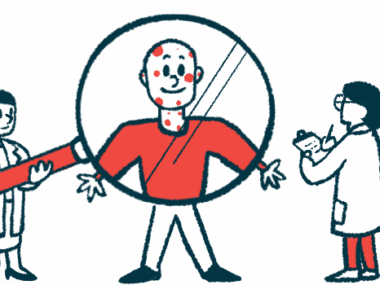No, Mr. Author, being disabled is not a tragedy
A book reminds me of the work still to be done in erasing stigmas
Written by |

A few years ago, I bought a book that I thought would change my life. It was during my self-help era, when I devoured any book I could find that would make me a better version of myself. With thousands of reviews and such high praise, I was curious to see if it lived up to the hype. A couple of chapters in, however, I was taken aback by something I read:
”You may even face tragic circumstances like disability, disease, or the death of a loved one.”
Caught off guard, I immediately closed my Kindle app. I took a moment to process his words and couldn’t help but question myself.
Did I really just read that? Did the author really just use disabilities to illustrate what a tragic circumstance might be? Does he know how fulfilling life can be with a disability?
Fighting misconceptions
Living with SMA, I’ve faced unique challenges and obstacles. There have been dire moments when I’ve questioned my resiliency and strength. There have been moments of exhaustion and defeat. But never have my battles diminished my worth or painted me as a tragedy.
That idea is a common misconception I’ve dealt with over the years — that living with SMA, or any disability for that matter, is tragic. Of course, that doesn’t mean I’m immune from tragedies, either. I’ve faced tragic circumstances in my life and will again. In fact, I’m relatively sure that, disability or not, we’ve all faced tragedy at some point in our lives.
Whether or not we accept it, tragedy is part of the roller coaster we call life. And it comes in many different forms. For the author to have isolated disability as tragic felt unfair. It was hurtful.
In such situations, I’m reminded of the importance of educating others to foster a more authentic understanding of disabilities such as SMA. In fact, February is Rare Disease Month and the perfect opportunity to do so.
Many disabilities are classified as rare diseases, affecting around 400 million people worldwide. Rare Disease Month is dedicated to celebrating those affected, but it’s also a time to educate others to create change in our communities. By educating others on the realities of rare diseases, we can begin dismantling the stigmas that exist about disabilities. After all, to truly spark change, we need to be well-informed first.
Living with SMA, I’m rare; it’s all I’ve ever known. It isn’t some tragedy to be pitied. It’s my life. And it’s played an integral role in the person I’ve become. Today and every day, I’ll project this message to bring more education to the world and, hopefully, pick up books with stories more like mine someday.
Note: SMA News Today is strictly a news and information website about the disease. It does not provide medical advice, diagnosis, or treatment. This content is not intended to be a substitute for professional medical advice, diagnosis, or treatment. Always seek the advice of your physician or other qualified health provider with any questions you may have regarding a medical condition. Never disregard professional medical advice or delay in seeking it because of something you have read on this website. The opinions expressed in this column are not those of SMA News Today or its parent company, Bionews, and are intended to spark discussion about issues pertaining to spinal muscular atrophy.





Susana Morse
Yeah. I hear you.
It’s so much easier to address this with children than adults. A kid might ask why I’m in the chair and all I have to do is say I’m different. You have blue eyes, your friend has brown eyes, one isn’t better than the other, only different.
But adults have this ingrained idea that disability is the end of life, a great tragedy. It can be isolating and hurtful and exhausting, but I think tragedy is not having a life at all. Or maybe the tragedy is that they can’t see beyond the disability to life you can have.
In one way or another we measure our value through physicality, our attractiveness, our capacity. As we know, there’s a lot more to a meaningful life.
I’m not sure which annoys me more, the violin pity party, or them deciding that I’m their personal hero because of the obstacles I face on a daily basis.
Alyssa Silva
So true. I think you make a great point by saying that the real tragedy is people not being able to see beyond someone’s disability. It’s frustrating to say the least.